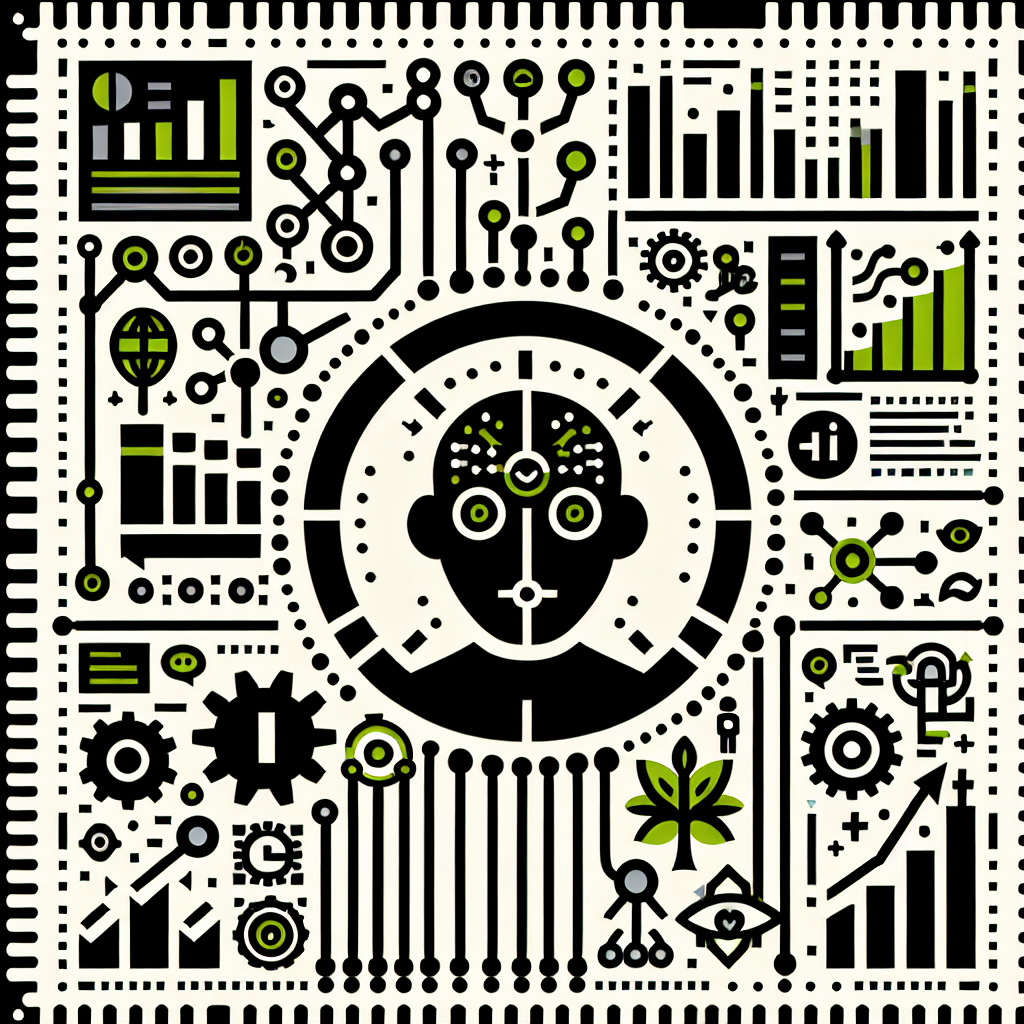Understanding the Role of Personalized AI Marketing for Influencer Branding
The Rise of Personalized AI Marketing in Brand Strategy
In recent years, AI has established its role in marketing. One study indicates that AI-driven initiatives could increase business productivity by up to 40%. Artificial intelligence, especially in personalized marketing, can help influencers shape their brand strategy, attract potential followers, and engage with their existing audience on a more personal level.
AI marketing incorporates data-driven analytics and customer insights to pinpoint what makes an audience tick. Influencers, particularly in the adult content industry, can harness AI solutions’ ability to identify patterns, trends, and predictive behaviors. Through sophisticated algorithms, influencers can offer curated content aligned with viewer preferences, improving their content consumption.
Benefits of Utilizing Personalized AI Marketing for Influencer Branding
Use of personalized AI marketing provides several significant advantages. It permits hyper-personalization, offers predictive analytics, and optimizes content delivery times. The use of AI can streamline the ever-challenging task of audience segmentation, enhancing personalization.
Moreover, AI can predict future trends, providing insights that can steer influencers in the right direction. The use of AI can also determine when best to schedule posts for optimal viewer engagement. Certainly, personalized AI marketing is paving the way for more refined and effective influencer branding.
Case Study: Success Stories of Personalized AI Marketing in Influencer Branding
Companies like L’Oreal and Coach have used personalized AI marketing to boost their branding efforts. Adult content influencers can also replicate such successes. AI’s proven ability to drive growth and revenue can notably enhance influencer opportunities and branding reach.
In the throes of an increasingly competitive digital age, success hinges on differentiation. Personalized AI marketing offers influencers a valuable tool to differentiate their brand and strengthen their bond with followers.
Personalized AI Marketing: A Game-Changer for Influencer Branding
How Personalized AI Marketing is Reshaping Influencer Branding
Marketing has evolved tremendously due to AI’s influence. Personalized AI marketing is reinventing the dynamics of influencer branding by enabling an intimate understanding of individual consumer behavior patterns. Increased data availability and complex algorithms are facilitating higher engagement levels than ever seen before.
By using AI-driven marketing tools, influencers can achieve a higher level of customization, fine-tune their strategies, modify their content delivery, and engage more effectively with their audience. There’s little doubt that AI marketing is spearheading a marketing metamorphosis.
Best Practices in Implementing Personalized AI Marketing
Incorporating personalized AI marketing into your branding strategy requires careful handling. Essential aspects involve collecting relevant data, ensuring data integrity, adopting AI-powered tools suited to your unique needs, and frequently verifying and updating your strategies.
Be discerning when collecting data; the collected data must be relevant and reliable. Once you have good data, the right tools will help you make the best use of it. This could range from AI-driven CRMs and predictive analytics tools to solutions like customer journey mapping and personalization engines.
Predicting the Future of Influencer Branding with Personalized AI Marketing
The marriage of AI and marketing is fast-becoming a necessity for influencers to stay competitive. Experts predict that AI will profoundly alter the influencer landscape in years to come. AI will not only filter through data but also automate tasks that currently require manual labor, freeing influencers to focus on content creation and direct audience engagement.
Surely, the future looks bright for influencers willing to embrace AI’s benefits in their personalized marketing strategies.
Overcoming Challenges in Personalized AI Marketing for Influencer Branding
Recognizing the Common Challenges in Applying Personalized AI Marketing
While AI holds great promise, implementing it can pose significant challenges. Limited AI literacy, data privacy issues, and resistance to change can hinder AI marketing adoption. These challenges aren’t insurmountable, though, and by acknowledging them, influencers can develop solutions and leverage AI’s numerous advantages.
Strategies to Enhance the Impact of Personalized AI Marketing for Influencer Branding
To maximize AI’s impact, influencers should consider strategies like continuous learning, embracing change, and ensuring data protection norms are upheld. Continuous learning will allow influencers to remain abreast of the latest AI marketing trends and applications. Embracing change means adapting to emerging technologies and methodologies.
At the same time, influencers need to respect data privacy and take data security measures seriously. Following these strategies will certainly enable influencers to enrich their branding.
Expert Tips: Maximizing the Potential of Personalized AI Marketing in Influencer Branding
Experts advise influencers to utilize AI for personalizing content and understanding audience preferences better. Adopting AI tools capable of voice and image recognition can also elevate the marketing game. Keeping in mind the inherent challenges of AI, these tactics can certainly help influencers maximize personalized AI marketing benefits.
In conclusion, personalized AI marketing presents a new frontier for influencer branding. With the correct approach and tools, influencers can use AI to shake up the digital landscape and elevate their branding game.
Key Takeaways
-
The Growing Importance of Personalized AI Marketing in Brand Strategy
Personalized AI Marketing has revolutionized brand strategy by generating highly targeted, relevant content that intrigues and attracts an individual audience based on their preferences, behaviors, and interactions. -
Advantages of Applying AI in Influencer Branding
Utilizing AI in influencer branding has numerous benefits, which include generating high levels of customer engagement, improving the efficiency of content delivery, personalizing the marketing experience for each follower and boosting brand loyalty. -
Success Stories of AI in Influencer Branding
Several brands have witnessed tremendous growth and success by topographically integrating AI in their influencer marketing strategy. It has not only modified their interaction with customers but has also improved their ROI. -
Personalized AI Marketing as a Game-Changer
AI is reshaping influencer branding by providing insights into audience behavior, thereby assisting influencers in crafting personalized content. This has made brands more relatable and authentic to the audience. -
Effective Implementation of AI Marketing
To exploit AI technologies fully, brands must emphasize building an AI-inclusive marketing strategy, integrated CRM systems, personalized customer interactions, and constantly monitor and adjust the AI models. -
Predicting the future of Influencer Branding with AI
AI technology is set to become the heart of influencer branding in the near future, with more personalized, predictive, and immersive campaigns tailored to individual customer’s needs. -
Challenges in Implementing Personalized AI Marketing
Some barriers confront Personalized AI Marketing, including data privacy issues, lack of quality data, insufficient understanding of AI, infrastructural deficiencies, and resistance to change. -
Enhancing the Impact of Personalized AI Marketing
Addressing the challenges will be key to maximizing the potential of AI in influencer marketing. Developing an AI-focused culture, investing in up-to-date technologies and partnerships will be imperative strategies.
Frequently Asked Questions
-
What is Personalized AI Marketing?
Personalized AI Marketing refers to the use of artificial intelligence in marketing to tailor content, promotions, and messages to individual customers based on their behaviors and preferences. -
How does AI benefit influencer branding?
AI significantly boosts influencer branding by personalizing content, target-specific promotions, enhances engagement rates, improves efficiency, and fosters brand loyalty. -
Can you give examples of brands that have successfully used AI in influencer branding?
Brands like Nike, Starbucks, Sephora are some of the brands that have witnessed success by integrating AI into their influencer branding strategies. -
How is AI reshaping Influencer branding?
AI is providing valuable insights into audience behavior and preferences, helping influencers watch audiences, respond to trends, create personalized content and engage more effectively. -
How can a brand implement AI Marketing effectively?
For effective implementation, brands should focus on building an AI-inclusive marketing strategy, integrated CRM systems, personalized customer interactions, and continual monitoring and adjustment of AI models. -
What is the future of Influencer Branding with AI?
The future of influencer branding with AI presents a more personalized, predictive, and engaging marketing landscape, leveraging data-driven insights for crafting custom campaigns. -
What are the challenges in implementing Personalized AI marketing?
Key challenges to implementing AI marketing include concerns about data privacy, lack of quality data, insufficient understanding of AI, infrastructural deficiencies, and resistance to change. -
How can the impact of Personalized AI marketing be enhanced?
The impact of AI marketing can be boosted by fostering an AI culture in the organization, investing in AI technologies, data quality, and developing strategic partnerships. -
How does AI improve the ROI of Influencer marketing?
AI improves the ROI of influencer marketing by helping brands understand and target their audience better, personalize content, and improve engagement rates, fostering brand loyalty. -
Is AI a threat to jobs in Influencer marketing?
While AI is likely to automate several processes, it doesn’t necessarily pose a threat to jobs. Instead, it will create opportunities for new roles focused on data and strategy.



